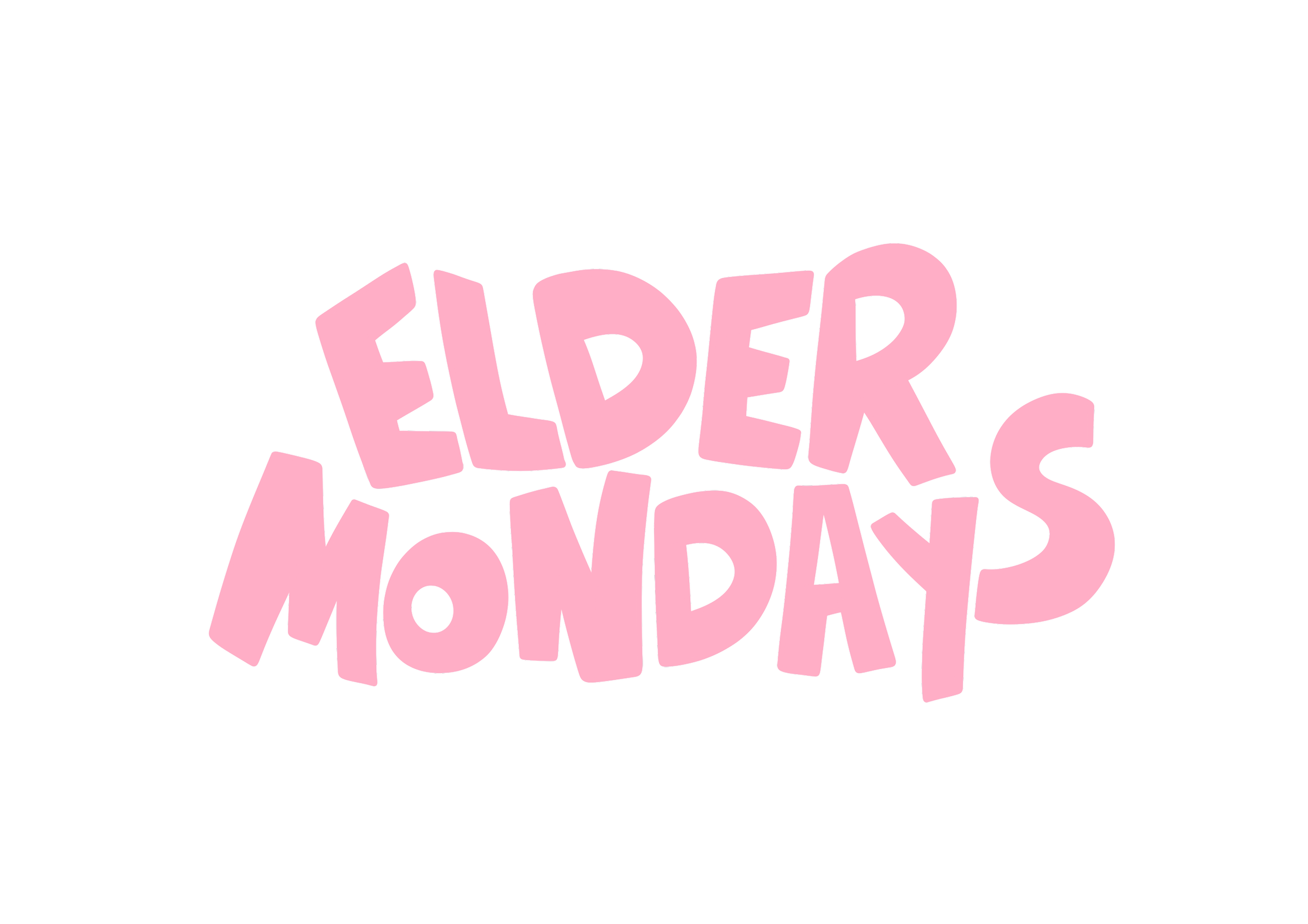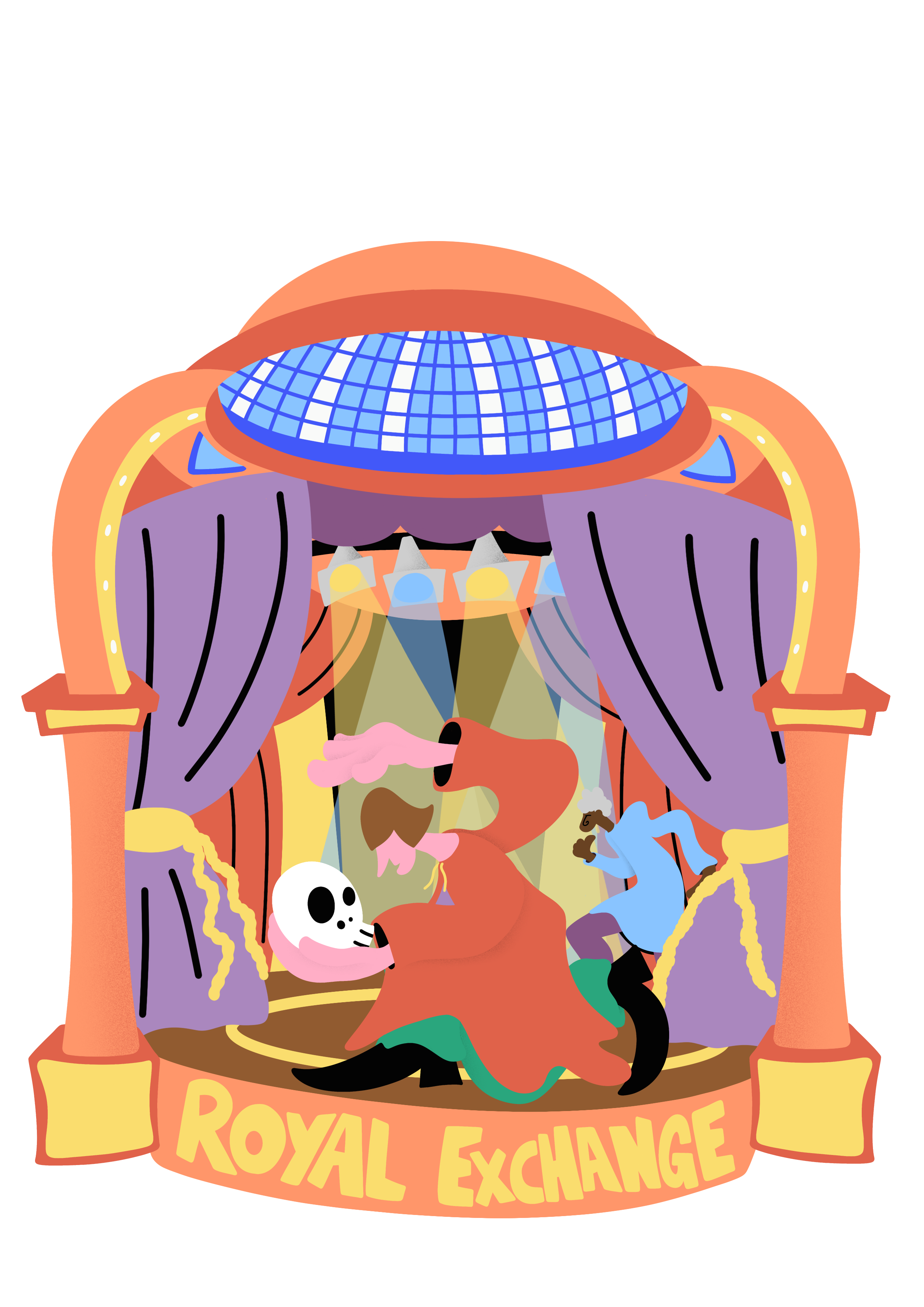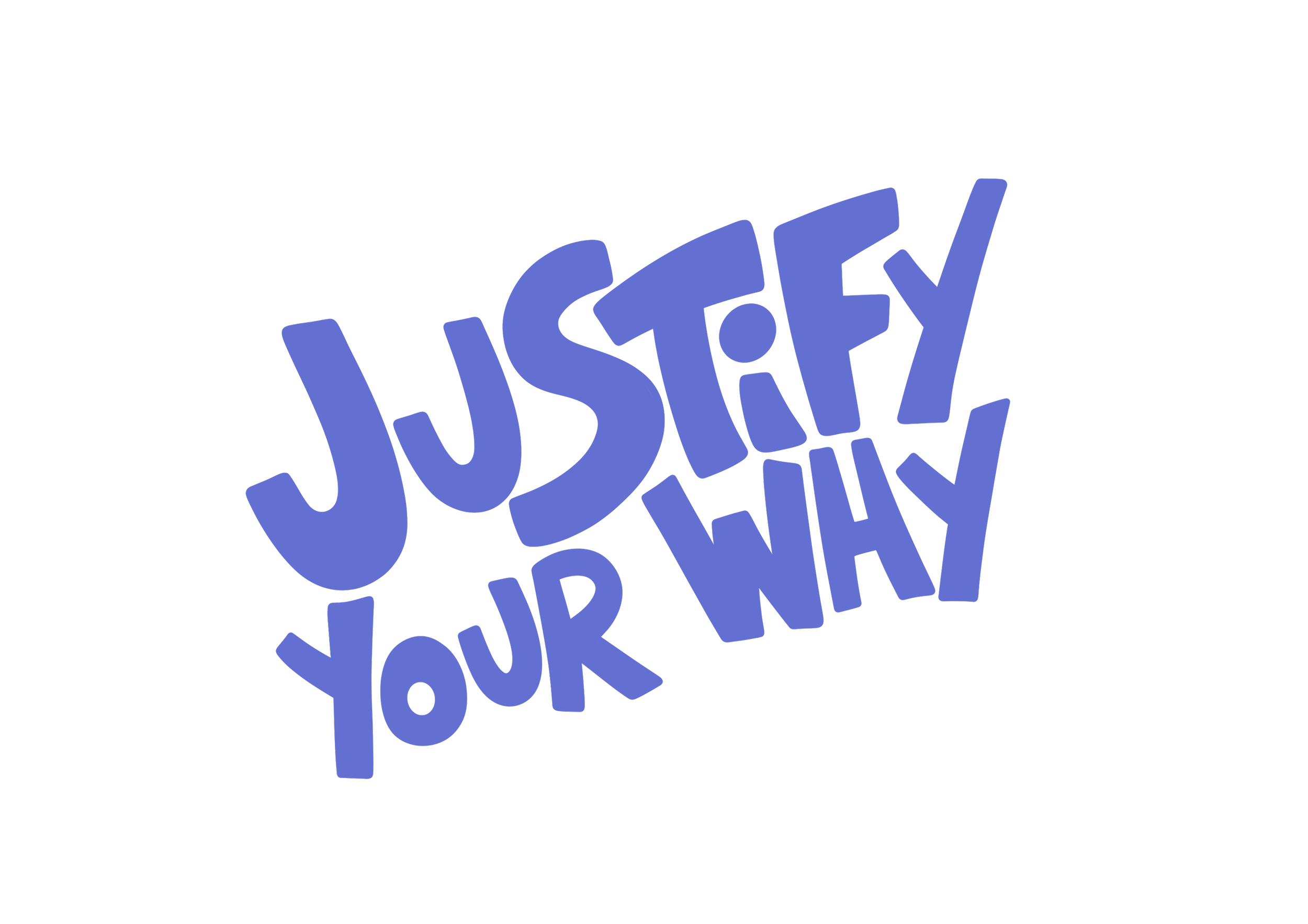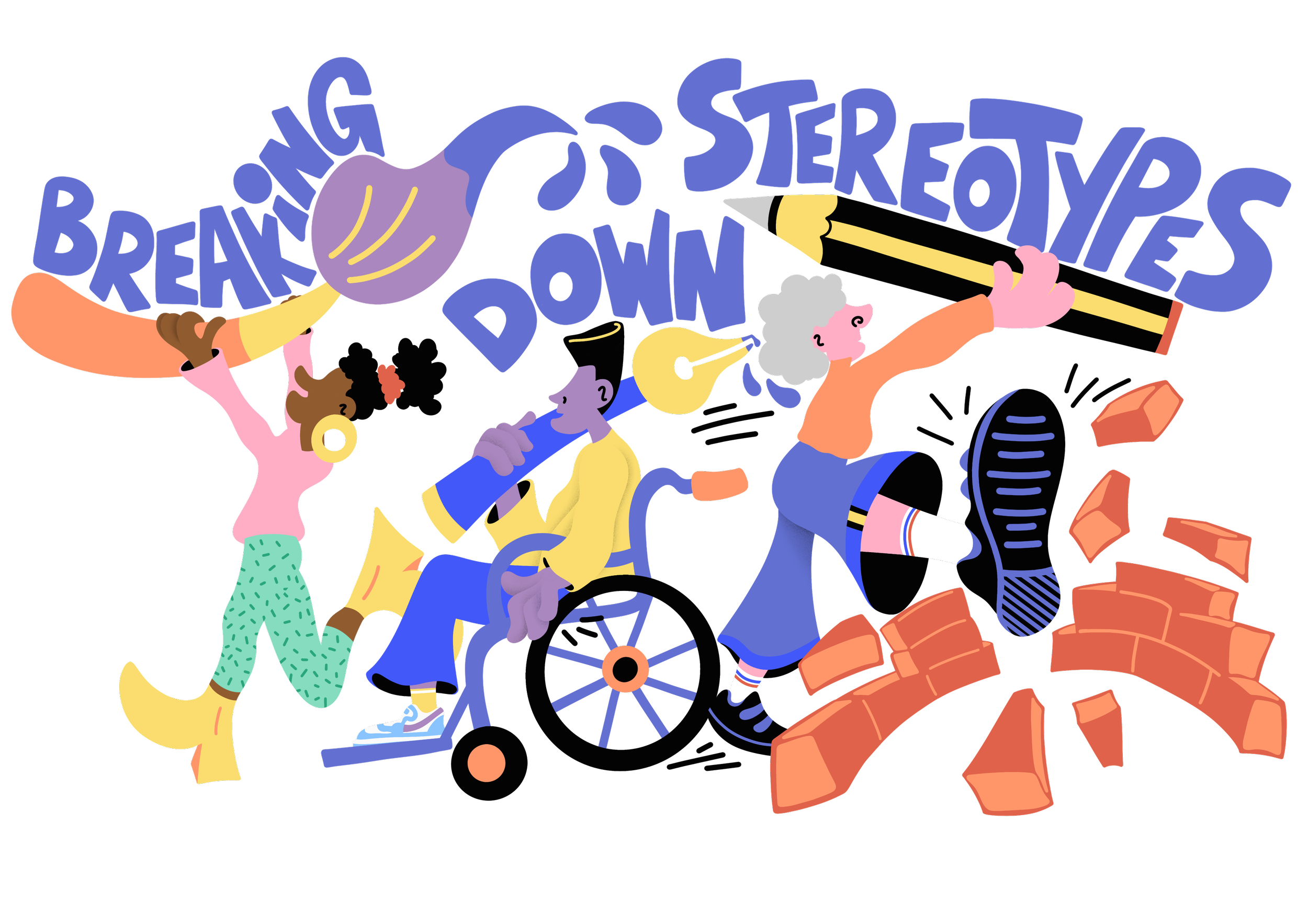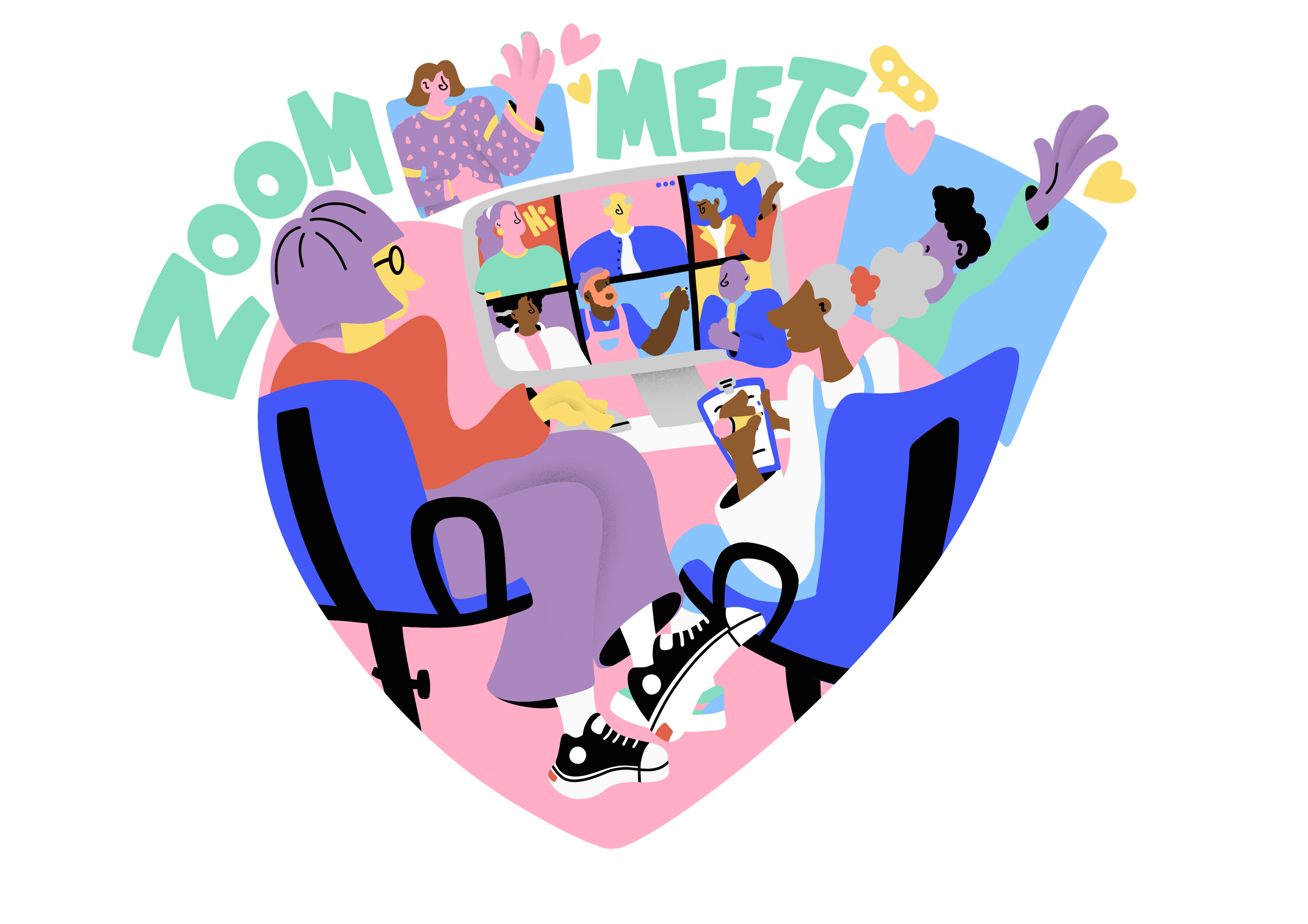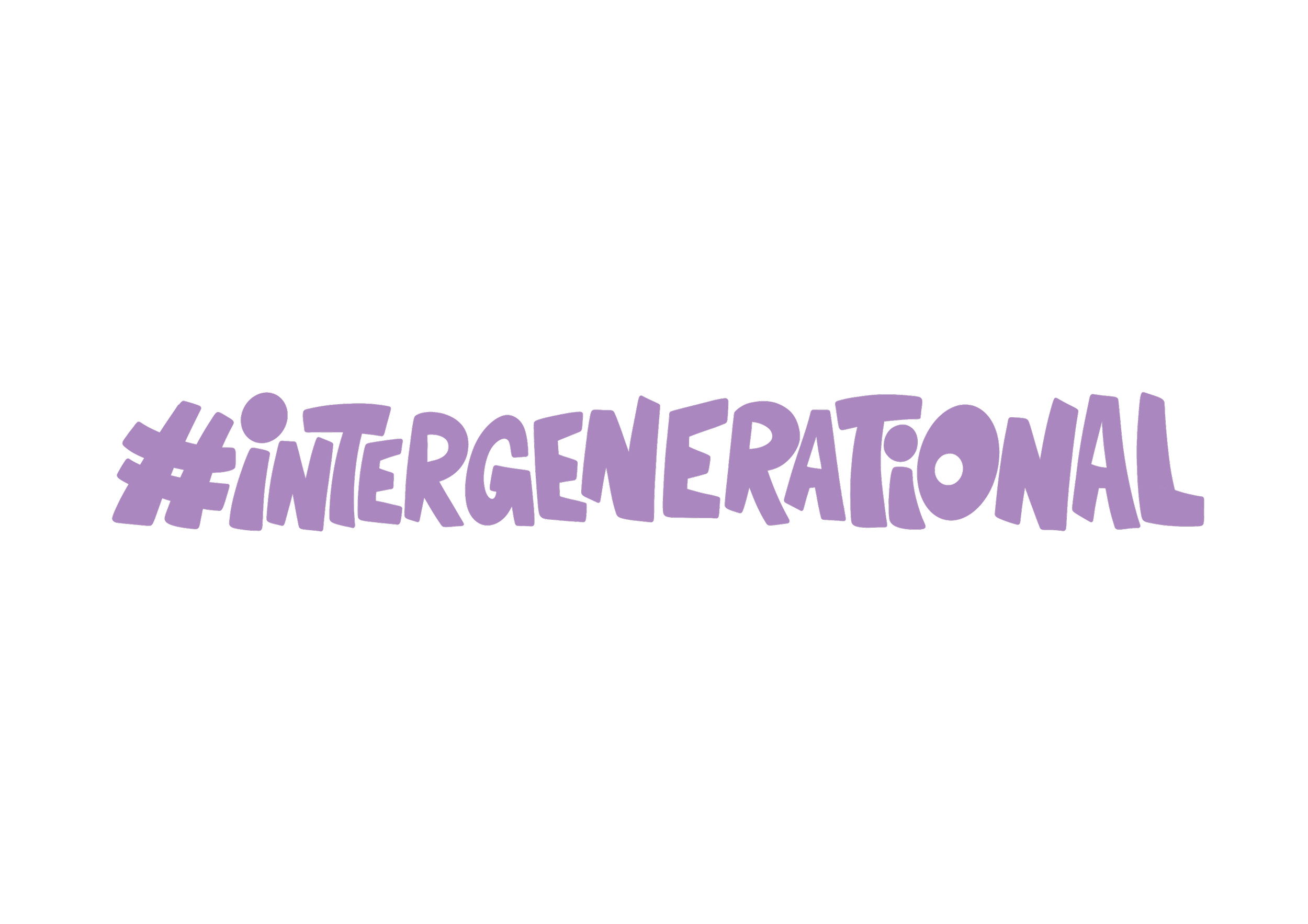For almost a decade, Manchester’s Royal Exchange Theatre has run a programme of work with older people, supporting them to be creative and integrating their projects into the theatre’s programme. Theatre director and Elders Programme Producer, Andy Barry explains how you can develop your own creative ageing journey.
Background
The Royal Exchange Theatre (RET) in Manchester is the UK’s largest producing theatre-in-the-round. Its strong commitment to working with local communities across Greater Manchester includes The Elders, which offers a range of activities for older people, and its Young Company programme – year-round activities for 14–25-year-olds.
The Elders is an internationally-recognised programme of work with older people that aims to challenge ageism and promote creativity into later life. Since 2014 it has worked with hundreds of older people in Manchester on a range of artistic projects, walking alongside them on their creative journeys and supporting them to maintain social links as they age.
This is a story about individuals
It’s a story about what we’ve been doing and how we try to do that with our participants rather than to them. It’s about the things we’ve got right, and the bits we could do better. But ours is just one example – to learn more about the wonderful creative ageing practice happening across the UK, take a look at The Baring Foundation’s Resources which excellently chronicle that work.
In this chapter, I hope you’ll find some useful takeaways as you develop your own creative practice with older people, formulate artistic policy for your organisation, or think about which projects to fund. At the very least, I hope it will shine a light on the concept of creative ageing, make you consider your own creative ageing journey and encourage you to value the brilliant contributions that older people can make to the arts.
What we do
Our Elders Company has evolved into a broad programme of work with older people. Each year we recruit a new group of participants aged 60+ who then take part in a year-long programme of creative learning. On completion, they become Elders Graduates and continue their journey with us, taking part in graduate projects, including intergenerational work with our Young Company and receiving regular news updates from us, as well as being informed about other external projects (both professional and community).
Some Graduates go on to become Elders Leaders. This volunteer role involves supporting sessions, leading their own projects and helping to shape how the programme develops.
Throughout the year, we run Elders Mondays, an open-access programme of activities for anyone who identifies as older. Activities include play-reading, creative writing, practical drama sessions and specialist classes led by theatre professionals, for example, a fight director or voice coach.
Session and course fees apply, but we have a unique fund at the Royal Exchange Theatre called Arts Pot which can help any Greater Manchester resident take part in our programmes, whether that’s help with course fees, travel or other access costs.
How we do it
In preparing to write this, I asked many of our regular Elders to respond to the question ‘What’s the single most important thing you value about the way the Elders works (which is the bit that should be replicated if someone were running a similar project)?’
Their responses can be organised into four main areas:
1. Safe spaces
2. Diversity of individuals taking part
3. Quality of activities and the people running them
4. Leadership
Safe spaces
“ Every single one of us working on this project is entitled to work in a safe space: a space free of fear, a space free of bullying and harassment of any kind. We will work together honouring our differences and celebrating the gifts we each bring to the table. We will treat one another with politeness and respect at all times and, if we are subjected to or witness bullying and harassment, we will speak out knowing that our voices will be heard and we will be taken seriously. Together we can create a Safe Space.”
At the Exchange, we use Equity’s safe spaces statement. This is read at the start of all projects and one-off sessions across all of the Company’s work (not just the Elders).
“[The single most important thing is] The safe space created by the terms outlined and the underlining caring of the leader which, in turn, was taken on by the group itself. Because of this, I think we felt open to following the guidance for the activities. Later, I felt more able to take risks, began to find my voice and accept that things didn’t always go well.”
21/22 Elders Company member
Some might assume that older people would instinctively work in ways that promote a safe space because of wisdom accumulated over the years. This is an ageist stereotype – not all older people are wise. If anything, there can be an additional level of vulnerability for some older people when it comes to creativity, so being able to take risks requires an extra layer of support.
Reading a safe spaces statement is one thing; keeping it alive is another. The statement is always displayed or referenced, even in sessions with regular attendees. However, it’s in the moments when the safe space is potentially compromised that the real work happens.
There is a paradox in encouraging people to free themselves, to find their creative voice and speak their truth while at the same time challenging inappropriate comments or behaviours (whether intended or not) that may threaten the safety of the space for some people in it. Being able to uphold the safety of the space is key.
This paradox became particularly clear to me during an improvisation project we ran with our Elders Company. Improvisation is a real challenge for participants new to it, and we constantly encourage people not to self-edit; to go with their first thoughts and accept ideas. It’s fun and larger than life, but sometimes it veers into negative stereotypes or lazy clichés. The conundrum for the group, and me as the leader, was how to challenge these moments without crushing someone’s developing confidence to perform in front of others. Together we found a way, and we achieved it because the space was made safe from the beginning. By encouraging a genuinely open communication that was reflective and promoted learning and self-awareness, it meant that in these moments, we could challenge each other, clearly and directly without shaming anyone, but importantly the safe space was guarded. Creating and maintaining a space that feels equitable and inclusive empowers people to flourish.
“My life has changed so much since joining the Elders Company. I feel so happy, so confident, so creative, and I feel so safe and respected. You have helped me shine.”
21/22 Elders Company member
Older people are not a homogenous group. They’re individuals with different interests, ideas, opinions and capabilities. We live in an ageist society (visit any greetings card shop and you’ll see the casual ageism on display), so creating spaces for older people to feel safe, valued and visible is what drives our work. We also strive to remember that the older people we work with come from all walks of life and are themselves an intergenerational group, and it seems that this is one of the things they value most. We found that recruiting a diverse group is a priority for those taking part.
People discover The Elders in different ways. The already-curious will sign up for our newsletter, check out our website or just turn up to an Elders Monday. For Elders Company recruitment, we do taster sessions in areas where we know we are underrepresented, and promote these sessions through partner organisations and word-of-mouth with our existing cohort, who are our strongest asset. Our recruitment flyers and film use clear, direct language and aim to show that there’s a real range of people taking part – not everyone is an expert.
“I can come regularly, meet with a diverse group of older people and engage in quality activities with professional people from different aspects of theatre. The message I receive from this is knowing that as an older person I am valued for who I am.”
Elders Graduate member
Diversity of individuals taking part
One Elders Company member commented that they found ‘the recruitment process to be simple and effective, and not too daunting’. Another member, who is deafblind, valued the flexibility of the recruitment that was tailored to support her, including an initial meeting separate from the taster session and assistance completing the application. The member went on to say that getting the recruitment right was critical in how she went onto engage with us: ‘Recruitment is definitely the key to whatever may come after.’
This thought was frequently echoed by other participants. Initial contact is key to how people will continue to engage with the project. A warm, safe, welcoming, and gentle start invites people in. People also need to get a sense of the forthcoming challenge because some find it motivating. For others, it’s motivating to know that there were more people wanting to take part than there were places available.
The journey of The Elders is hopefully a long (and rewarding) climb for people. The key is knowing when and how far to challenge individuals. A gentle, supportive start that’s easily accessed is fundamental. Later, you can invite people up the tricky parts of the mountain, gently encouraging them out of their comfort zones, and making sure they take in the view of what they’ve achieved along the way.
Quality of activities
‘The opportunity to learn about all aspects of theatre-making from experienced, professional practitioners; to develop theatre-making skills and have opportunities to put these into practice.’
Elders Graduate member
The Elders is designed to facilitate people’s creative journeys. The older people working with us might be engaged for a long time. People want to keep engaging because they value the quality of activities and the professionals leading them.
It’s important for us to find ways to connect our professional creatives and productions to the wider Elders programme. By offering one-off sessions or projects with our in-house technical staff or visiting creative teams, the elders taking part feel valued and included in the wider organisation. People want to be stretched and grow, whatever age they are.
This approach presents an organisational challenge about how to create space in the programme. The Company/Graduate model enables us to involve new people while still maintaining relationships with long-standing participants. The more experienced members positively challenge us to keep re-inventing activities. From both informal and formal feedback, we can evolve projects. Our Leaders’ meetings provide regular opportunities for discussion and reflection. The Leaders also listen and chat to other participants, which gives us an informal way to gather feedback and develop ideas. At the end of longer projects, we host group sessions and offer participants the chance to provide individual written responses. This way, The Elders constantly evolves.
Group leadership
Creative leadership of a programme or project is hugely important to consider. It sets a tone. Our model is about empowering people as artists in a safe and supportive environment. One of the greatest successes of the programme is in the way in which the Elders Graduates have championed and led their own projects, including self-publishing a poetry anthology called Elders Unmuted during the lockdown. Not only was this an important document of what the pandemic meant to them, but it also was a sign of their confidence as artists. They sold the anthology and raised over £1,000 for the Arts Pot, ensuring that more people would have access to similar creative programmes. It was a beautiful moment of things coming full circle. Participants who had really found their creative voice were now finding ways to empower others to do the same.
Creating a great sense of inclusivity and maintaining a safe space for all involved are the most important factors in any group work, but it seems particularly valued by the range of older people we are working with and is summed up in the following comments from 21/22 Elders Company members: ‘By the time we reach 60, the majority of us will have baggage that we carry around with us and/or health issues, either physical or mental. The games and activities are ideal ways to build up confidence, again something that may have been lost or severely dented. But most importantly, for it to work, it needs a leader who is empathetic with the client group, patient, kind, but firm and always maintaining high levels of positivity.’
‘[I really valued] the immense patience and understanding that older people don’t grasp things quickly, so I felt comfortable knowing it’s OK to get things wrong, and no one was left feeling embarrassed by making a mistake.’
TOP TIPS
Don’t always focus on the age part; it doesn’t have to be the creative focus of the activity.
Pathways – think about how the project will end and what the participants will do next (either with you or another organisation).
Embed reflection and feedback throughout the programme.
Join England’s CADA – Creative Ageing Development Agency and other local and national networks. There is so much brilliant Creative Ageing working happening across the UK; it’s inspiring.
Celebrate your own work. Our participants tell us they feel most visible and empowered when they are sharing what they have done locally, nationally and sometimes internationally.
In practice: The Dream Project
While we brought together a wide variety of participants to the Elders Company, we have for too long been under-representative in relation to ethnic diversity. In 2022, we created a project to begin addressing this.
Our first Dream Project was for older people from African and African-Caribbean diaspora. It aimed to celebrate and make visible the lives of older people who are frequently under-represented in theatres.
What we did
Employed a community connector (an older person from the community) to help us recruit to the project.
Hosted a series of taster sessions at our venue and in community spaces led by an older Black artist.
Created a new group from the taster sessions, which in the early stages had flexible membership so that new people could join.
Co-created an outcome of their choosing. In this case, they created a brand new piece of storytelling theatre called Dominoes & Dahlias (+Oware!), which was performed in our Studio space and later toured.
What we learned
Participants wanted to take part because they felt inspired by the community connector; they were excited to work alongside their community, and a project like this felt long overdue. As with participants in our other programmes, individuals noted the importance of the initial welcome.
Our initial recruitment flyer was too gender-biased, and the group suggested that a lack of male representation on the material was why the final group make-up included just one man.
The word ‘diaspora’ was a new word for some members and was a potential barrier to taking part.
Participants had confidence in the lead artist, even though at points they struggled to understand the creative process they were in, as it was all new to them. However, feeling safe in the space encouraged them to continue.
While the group were interested in accessing the wider Elders programme, they also felt real value and safety in a group focused solely on their community.
In practice: Elders Leaders and We’ll be in Touch
Our Elders Leaders programme is one of the ways we move people through the programme while continuing to stretch them as participants and leaders, and involve them in co-creating the programme.
The We’ll be in Touch project (including our DISRUPT-commissioned film demonstrates one of the many ways people have shown leadership, this time through a creative telephone service delivered in partnership with Together Dementia Support.
What we did
Connected with a community partner organisation, Together Dementia Support (TDS), and arts partner, Small Things (experts in creative projects for people living with dementia).
Adapted our existing phone projects from being story-based to being poetry-based.
Developed Zoom training with our Elders Leaders to plan the project with them, and supported them to deliver the phone calls.
Created a guide (including phone call session templates and script) to support the Leaders with each call.
Received referrals from TDS to the project and sent participants a welcome letter and pack.
What we learned
The project was mutually beneficially for participants, Leaders and staff at both organisations.
The more challenging stimulus material (for example, extracts from Shakespeare) created excellent poetry despite initial worries from some of the Leaders about handling more complex material.
Having all the calls take place at the same time each week made the process easier to manage.
It didn’t always work for every pairing, and while disappointing for some of the Leaders, they understood the realities of the personal circumstances of the people we were working with.
Leaders called participants once a week for four weeks to create poetry over the phone. Printed copies of the poems were sent on to the participants.
Hosted a weekly Zoom Group Supervision with the Leaders so they could discuss the call, celebrate poems and overcome challenges.
Later in the project, we developed additional sessions with the Elders Leaders for delivery.
Once restrictions ended, we hosted an informal in-person poetry-sharing event at the theatre.
In practice: Intergenerational Working
Our intergenerational programme regularly brings together our Elders and Young Company. Working with young people is one of the things our older people value the most about The Elders.
What we do…
We have an intergenerational guide to working, which is shared with everyone. On longer projects, we have a short activity session so each group can work separately to explore approaches to intergenerational working before coming together.
Part-way through the year, we find ways of bringing the Elders and Young Company members together for joint sessions.
Participants are encouraged to see and support each other’s work.
We regularly create intergenerational performance outcomes.
What we are learning
The Elders tend to be more hungry for this work at the start of the process than younger people are, so this can affect recruitment. We now bring Elders Company members to Young Company sessions early on to support intergenerational project recruitment later.
The shared language of Safe Spaces and Approaches to Theatre-Making that happens in their separate company groups supports productive working when they later come together.
At the end of sessions or projects, both groups say that intergenerational working is one of the things they value most about taking part at the Royal Exchange.
Activity 1: Consider ageism
Ageism exists in our society, and often it’s internalised and or unconscious. I’ve been on a personal journey to confront internalised ageism which has been really enlightening. I would encourage anyone working in the creative ageing field to reflect on their own ageing. So…
Do a free-write about how you feel about your own ageing process. Read it back – what does it reveal to you?
Ageism is everywhere, and it’s often unconsciously implied in what people do and say. It frequently happens in everyday conversations or moments. So, rehearse your arguments:
What is your response when a colleague or younger participant says to you: ‘I love your project; the older people are so cute.’ How might you challenge this type of ageist ‘compliment’?
What is your response to an older person on your project who says: ‘It must drive you mad working with us old fogeys.’ How might you challenge this type of internalised and sometimes unconscious ageism in a way that doesn’t shame or distance the person from your project?
Activity 2: Create
Stop reading this and write a poem (your inner artist will thank you for it).
We are often so focussed on developing the creativity of others we sometimes forget to nurture our own. It might feel hard in a busy working day to justify this creative space for yourself, so if you need a reason to justify it, consider this: taking care of your own creative expression not only builds your empathy for what the participants you are working alongside are experiencing and feeling, but it also means you are actively modelling creative ageing.


